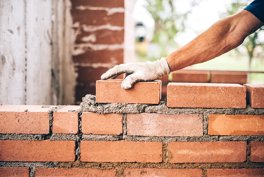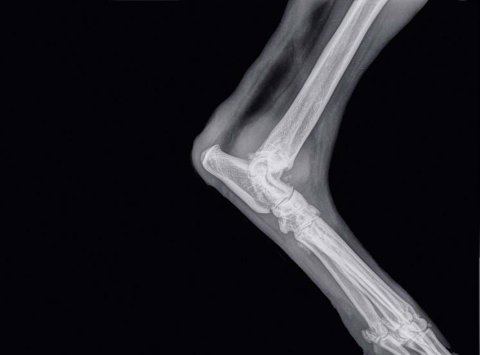The Impact on Miss G’s Life
Miss G was taken to hospital where it was found that she had suffered a fracture to her distal humerus, making up the upper part of her elbow. This required doctors to manipulate the area while she was under sedation. Miss G then had her left arm put in a cast which was later replaced with a humeral brace.
In the next few weeks and months, Miss G continued to have limited movement in her left arm and struggled to fully extend her elbow. She has been informed by a specialist doctor that this is likely to be permanent.
As a result of the fall, Miss G also suffered a mild traumatic brain injury and some visual disturbance. She continues to experience headaches and dizziness frequently.
Psychologically, Miss G has struggled since the accident, she feels extremely self-conscious about the scar that has been left on her arm and dresses to make sure it is always covered up. She has also suffered with anxiety about people accidentally touching the scar, this has led to her experiencing at least two separate panic attacks.
Before the accident, Miss G went to the gym at least twice a week and swam frequently. Now, she is no longer able to go to the gym because of the restricted movement in her left arm. Although she still tries to swim, it has become increasingly difficult as a result of her injuries.
How we Helped
We sent Miss G’s employer a letter of claim outlining the circumstances of the accident and how they were negligent in their common duties towards their employee. We identified that they had failed to provide for Miss G’s health and safety at work and they had exposed her to foreseeable risk of injury.
We then arranged for Miss G to be seen by medical experts who confirmed she was at around a five percent risk of developing late post traumatic epilepsy. If Miss G develops this form of epilepsy in the future, she will experience a further deterioration in her physical condition and therefore has the right to seek an award for provisional damages.
We considered all of this in the valuation of Miss G’s claim and included an Order that stated if her physical condition worsens, she will be entitled to apply for further damages.
Employer’s Responsibilities
When you’re hired for a job, your employer has a certain amount of responsibility for making sure that you’re protected. Their legal duty requires them to take a reasonable amount of care for your health and safety while you’re at work.
Your employer must provide you with a safe working environment, a safe system of work, and training. If your role requires you to use any special equipment or machinery, they must also make sure that these are well-maintained and operational.
Sometimes accidents at work can be a result of an employer not meeting their legal responsibilities. If you were injured because of this, you may make a claim for compensation.
The process is similar for anyone who’s self-employed. If you offer your services to a third party and you suffer an injury at work, then the company who you’re contracted to may be responsible for your accident.
If you’re unsure whether your employer has met their duty of care or responsible for your accident, our team and offer legal advice on your unique circumstances.
How the Personal Injury Claim Process Works
Before you start a claim, you should always complete an accident at work form as soon as you’re able to. Your employer should then report this to the Health and Safety Executive. This is important for your case if you ever decide to start a claim for compensation.
We strive to make your Personal Injury Claim as straightforward as possible. Here’s an overview of the process, so you know what to expect:
Initial Call
If you’ve suffered an accident at work that has led to an injury, get in touch with our expert team today. On your first call, we’ll take some details of your case and arrange a free claims assessment.
Claims Assessment
During your free claims assessment, we’ll talk about your accident and any injuries that you have suffered as a result. We’ll let you know straightaway whether you have a claim and how we can help.
We Contact Your Employer’s Insurers
If we can take on your case and you decide to make a claim, we’ll get in touch with your employer’s insurance company. For us to do this, your employer must have employers’ liability insurance cover that was in place at the time of the accident. Any compensation that you receive will be awarded out of this insurance policy.
Interim Payment
Once we’ve contacted your employer and their insurance company, they may admit partial or full liability. If they accept responsibility and fault of the accident that occurred, we could request an interim payment of compensation. This is ideal for any claimant who has immediate medical needs with costs that need to be paid for, such as mobility aids.
Evidence
We’ll work with you to build a strong case, which involves gathering any evidence that may be required. Evidence will include things such as photographs and witness statements. Photographs may include images of your injuries or the scene of the accident. We’ll also arrange for an independent medical assessment with a specialist medical expert. Your medical expert will write a report on your injuries and any impact they have had on your life. We’ll use this report to understand how serious your accident and injuries are to help determine how much compensation you may be awarded.
Medical Therapy
If you require medical treatment or rehabilitation as a result of your injuries, we can request that your employer’s insurance liability company pay for this treatment. Treatment can include surgery, physiotherapy, and counselling.
Court
Most Personal Injury Claims don’t go to court and are settled beforehand. But if your case does go to court, we’ll fully support you.
Costs You Can Claim Compensation For
There are two different types of claims – General Damages and Special Damages. If you can prove that your employer didn’t meet their legal responsibilities of protecting you while you’re at work, you can claim compensation for any suffering and the impact the accident has had on your life. This type of claim is referred to as General Damages.
You may also be able to recover costs for any financial losses that you have incurred as a result of your accident at work. This may include costs such as care, medical treatment, loss of earnings, damaged belongings, and travel expenses. This type of claim is known as Special Damages.
During your free claims assessment, we’ll advise you on which type of claim you’ll be able to make, based on the details that you provide.
Why Choose Simpson Millar?
Our expert Personal Injury Lawyers are here to help anyone who’s suffered an accident while at work. We’ll offer you a free claims assessment with a dedicated accident at work solicitor for your case. You’ll discuss your case, and we’ll offer specialist legal advice on whether your claim is likely to succeed.
Our solicitors have helped hundreds of construction accident claims cases that involve:
- Broken machinery
- Falls from height
- Manual handling and lifting
If you would like to discuss your case today, please contact one of our friendly advisors who can help.






